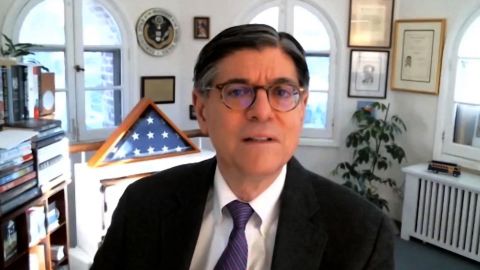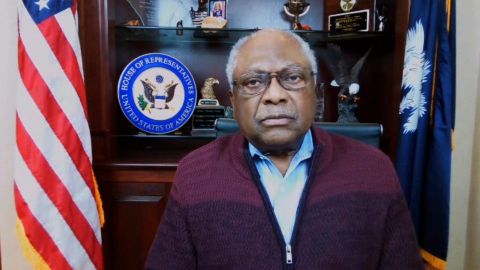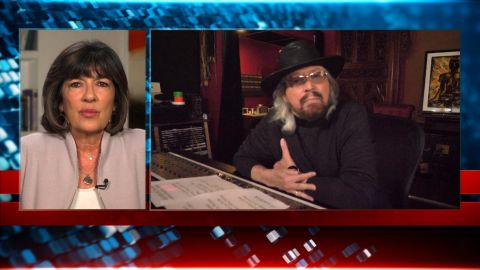Read Transcript EXPAND
CHRISTIANE AMANPOUR: So, Barry Gibb, it’s infectious. I’m just sitting here in my chair, and I can’t stop bopping. It was iconic at the time. When you were asked to do that, how did it even come about? I mean, you weren’t necessarily known as a disco group, were you?
BARRY GIBB, SINGER/SONGWRITER: No. Well, Ahmet Ertegun at Atlantic Records told us that they were going to drop the group if we couldn’t kick it up. And I think that’s the turn of phrase I remember hearing. And we had to reinvent ourselves. We were going through about two or three years of what I call the rock wilderness. And we had to come up with another way. And I have seen other artists do that. The Beatles did it with every album. So, you can’t just be — you can’t just be playing a certain kind of music. You have got to look the part and you have got to — every album cover should be different, and you should look different. So, we took about less than. And some of those songs for “Fever” were taken from previous albums, like “Children of the World” and things like that. So, it just became out of control, and — as everything does when it’s successful. And we just got — we were lucky that it didn’t end as quick as it might have. It just went on and on for years. And it was a wonderful experience, and very surreal, very surreal.
AMANPOUR: I mean, it is extraordinary. And it’s still cemented in people’s consciousness. I mean, it’s still — it never gets old, that, particularly that song.
GIBB: Well…
AMANPOUR: But “Staying Alive” was not about dancing. I mean, there was not a single lyric that said the word dance in that. It was about something completely different, wasn’t it?
GIBB: Yes. Yes. Yes. It was about life and about New York and how that affected everybody else. And the story — and the film and the story in the film is about a family in New York wanted to go dancing. And it was actually called “Tribal Rights of a New Saturday Night.” That was the headline in a newspaper. And Robert was looking for a title for the film. And the suggestion was “Night Fever.” And he thought that was a little too sexually oriented.
(LAUGHTER)
GIBB: So, he rejected that. And then, later, we found out it was “Saturday Night Fever,” so go figure. You never really know what’s going to happen. And we were in Herouville outside Paris, mixing a live album called “Here at Last.” And Robert called and said: “We need about five or six songs for this film.” We didn’t even know it was a compilation album. So, we finished mixing the album, and we started recording, writing these songs and recording them. But, once again, you can’t predict what’s going to happen. The same with this album, “Greenfields.” You can’t predict it. I haven’t seen the documentary. I have seen the very early stages of the first cut, part of. And I just can’t watch my family disappear. It’s just — it’s just not — it’s just not something I can deal with.
About This Episode EXPAND
Rep. Jim Clyburn (D-SC) joins Christiane to discuss the new administration’s agenda, the potential for bipartisanship in Congress and the ongoing fight against COVID-19. Barry Gibb, the last surviving member of the Bee Gees, reflects on his legendary music career. Former U.S. Treasury Secretary Jack Lew joins Hari Sreenivasan to assess Biden’s stimulus plan and the economic challenges ahead.
LEARN MORE


